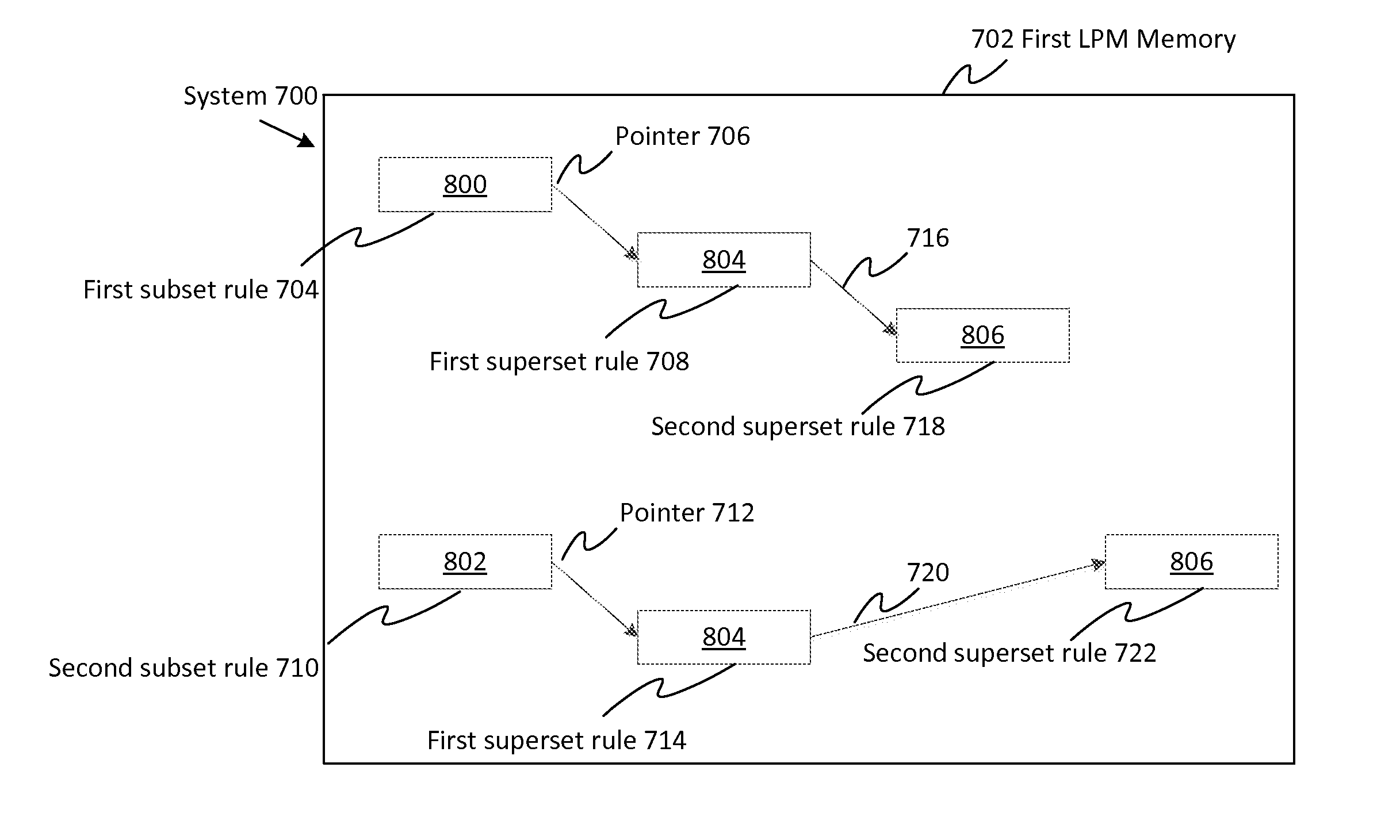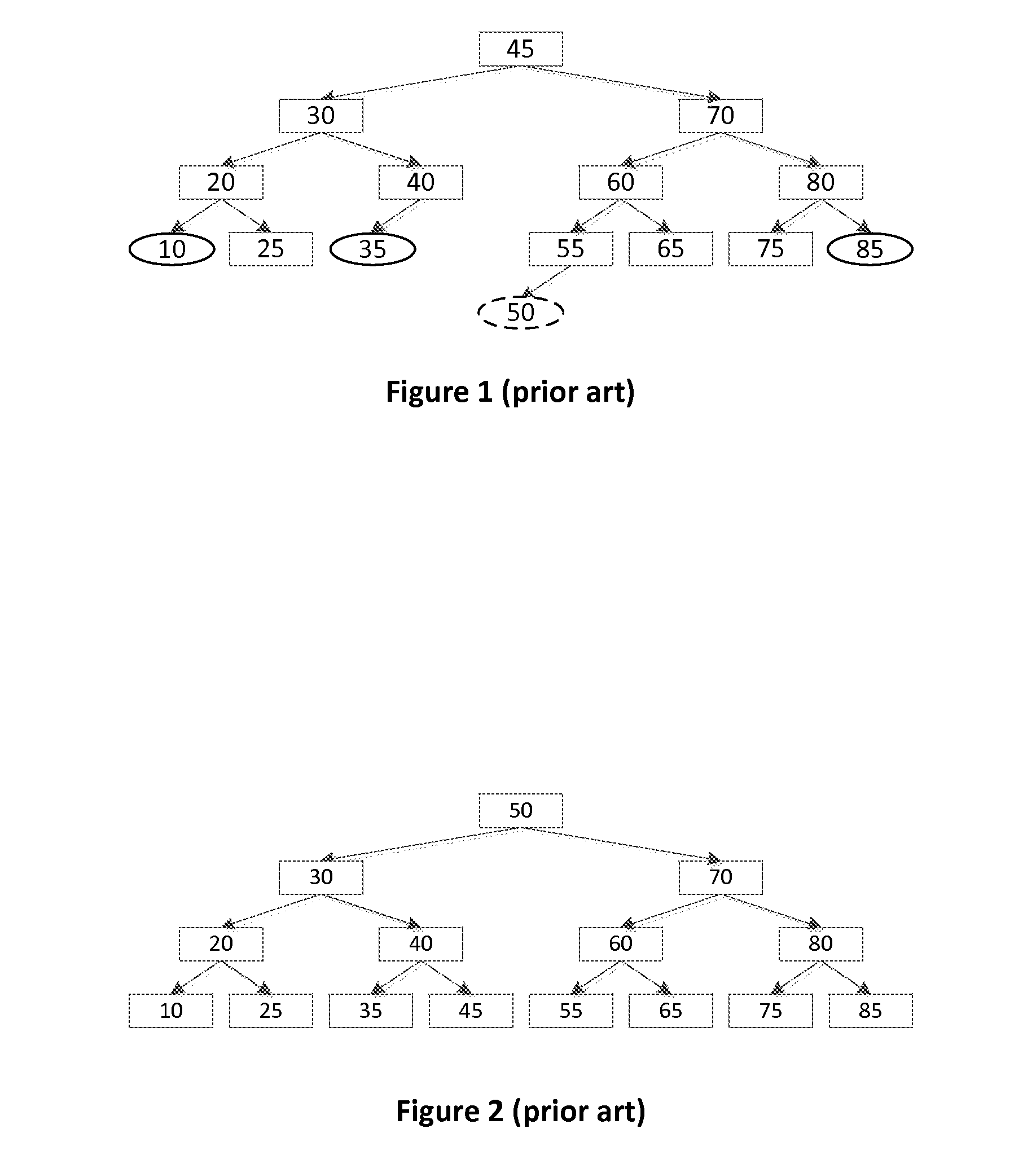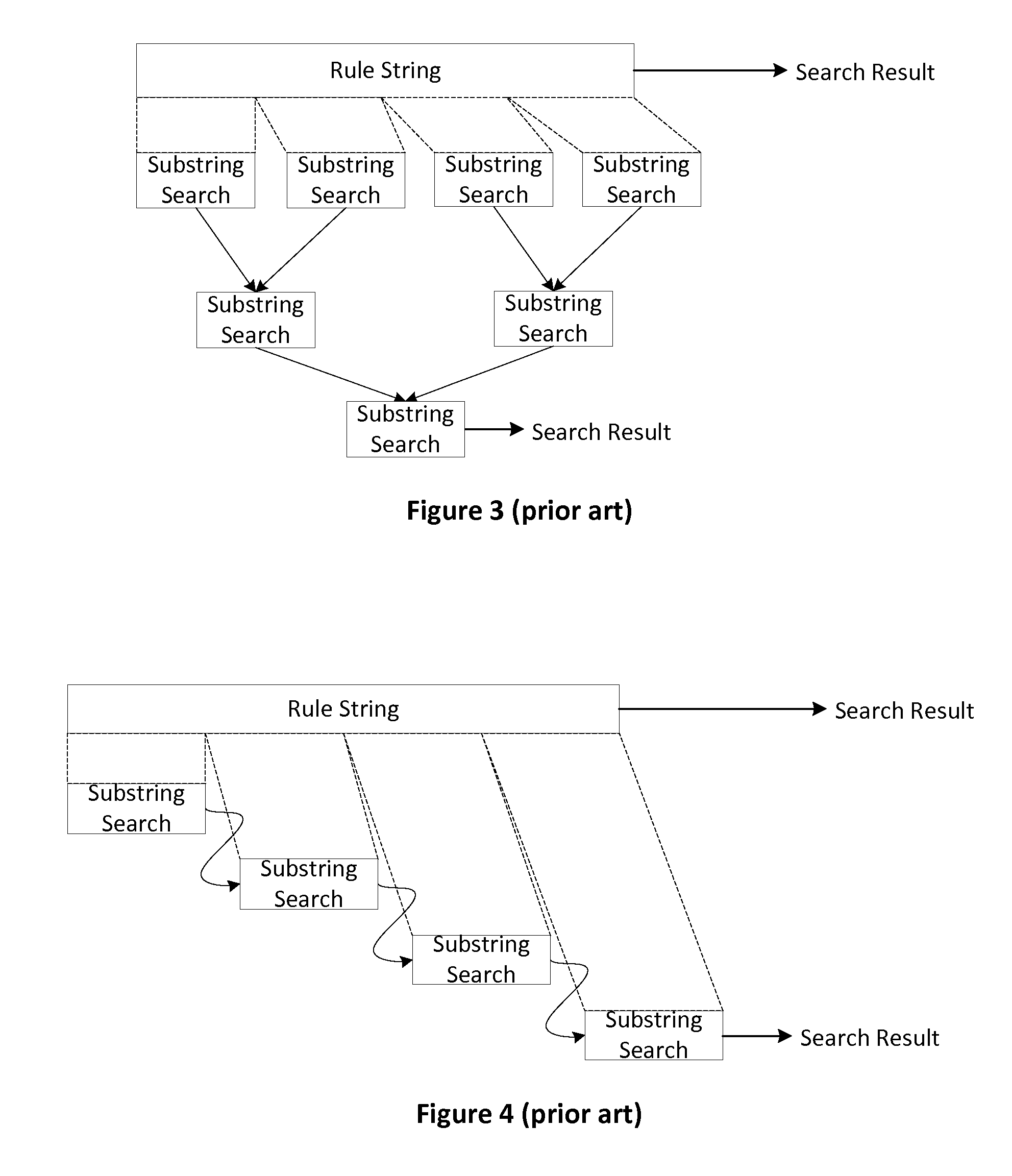Memory System for Optimized Search Access
a memory system and search access technology, applied in the field of memory system for optimizing search access, can solve the problems of long search latencies, large rule strings, large table sizes, etc., and achieve the effects of reducing rule expansion and resource overhead, maximizing performance, and simplifying table managemen
- Summary
- Abstract
- Description
- Claims
- Application Information
AI Technical Summary
Benefits of technology
Problems solved by technology
Method used
Image
Examples
Embodiment Construction
[0065]Overlapping Rules: Two rules are considered overlapping when there exists at least one string encoding that can match both rules. This is possible because rules can have wildcards in them. For example, the rules AAAA and AA** are considered overlapping because a search string AAAA will match both rules.
[0066]Non-overlapping Rules: Two rules are considered non-overlapping if it is not possible to have a string encoding match both rules. This occurs if the two rules have at least one exact match bit that has a different encoding between the two rules. For example, the rules AA** and AB** are considered non-overlapping because no search string can match both rules.
[0067]Superset Rule: If two LPM rules overlap, the rule that has its highest (most significant) wildcard bit in a higher bit position than the other rule. For example, within the two rules AAA* and AA**, rule AA** is the superset rule because it has bits 0-7 wildcarded whereas rule AAA* has bits 0-3 wildcarded.
[0068]Sub...
PUM
 Login to View More
Login to View More Abstract
Description
Claims
Application Information
 Login to View More
Login to View More - R&D
- Intellectual Property
- Life Sciences
- Materials
- Tech Scout
- Unparalleled Data Quality
- Higher Quality Content
- 60% Fewer Hallucinations
Browse by: Latest US Patents, China's latest patents, Technical Efficacy Thesaurus, Application Domain, Technology Topic, Popular Technical Reports.
© 2025 PatSnap. All rights reserved.Legal|Privacy policy|Modern Slavery Act Transparency Statement|Sitemap|About US| Contact US: help@patsnap.com



